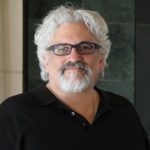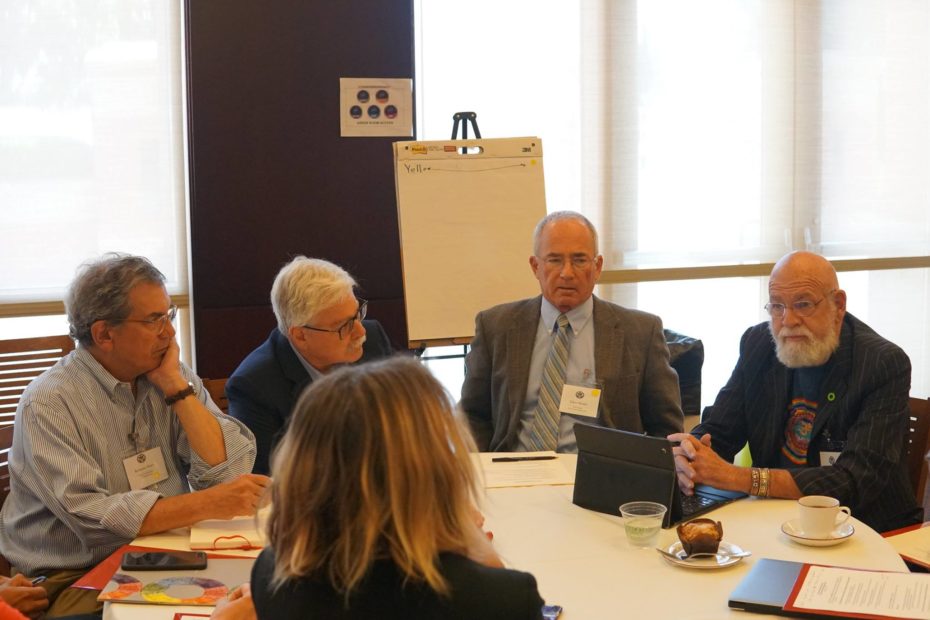Other articles in the October newsletter:
- President’s Blog, October 2017
- Senate Retreat: Teaching 2030
- Advancing Sustainability at USC: An Update from the Senate Sustainability Committee
Part of the Academic Senate’s August 16, 2017 Fall Planning Retreat was devoted to a discussion of “Controversy and Challenges in the Higher Education Community.” Speakers, followed by breakout groups and their reports, filled the morning.
Much of the panel discussion, moderated by Paula Cannon (Keck), centered around how the community should deal with many of the rapidly evolving emotional and ethical issues raised from within USC and from outside the university.
Godron Stables (Annenberg) posed questions about controversial speakers, disagreements between students and faculty, and conflicts with administration policies. He pointed out that controversy is not just disagreement but about determining and framing community norms. We accept the concepts of academic free speech, he said, but determining how the faculty should react (for instance) when students protest speakers with wildly outlier viewpoints is more difficult. He gave, as an example, the group of students at Middlebury College who shouted down a speaker whose views on linking socioeconomic status with race and intelligence were met with derision and some violence by approximately 100 students.
Varun Soni (Dean of Religious Life and Vice Provost for Campus Wellness and Crisis Intervention) discussed how the initiation of a travel ban presented many universities with a quandary – whether to directly denounce the ban or to take a more moderated approach. Many University Presidents, including USC’s, signed a statement about how the ban would affect academia. Dr. Soni implored the group to understand the anxiety many students face coming to campus due to the ban.
Manuel Pastor (Dornsife) discussed our response to the issues posed by President Trump’s policies in regard to DACA. He framed the Sanctuary Campus issue with a question: “Why was USC the 100th university to sign the letter [supporting students affected by DACA]” when it was clear our students wanted the letter’s symbolic nature. “We have to make our actions this year count” he implored.
Ange-Marie Hancock (Dornsife) addressed the medical effects of hate speech for our students –both psychological and physically. She challenged the Senate to contest the idea that “any advance for one group comes with a loss of another.” In addition to identifying our own implicit biases, Hancock asked the Senate to act on the question “What expertise should [each of us] develop to contend with the changing demographics of higher education?”
The panel discussion was followed by breakout sessions directed towards understanding how to handle controversial topics and a challenging political environment.
Much of the talk centered around our slow responses to issues raised by Trump administration policies, as well as USC’s own very public issues this past summer with Keck’s former Dean and the administration’s response. Rapid transparency was discussed as challenge for us to tackle. The value of symbolic statements and open emergency meetings were discussed as well as the role of the Senate and the Faculty Councils at the individual schools.
Other topics discussed included how these issues affected our teaching, with senators reporting feelings of uncertainty as to what can we talk about in class and the repercussions of doing so. Also discussed were developing more bonds between academic units, the crucial role that our teaching assistants play, and the necessity for strong and consistent training.
To discuss go to our Facebook post.

Norman Hollyn
Professor
School of Cinematic Arts
Inaugural Holder, Michael Kahn Endowed Chair in Editing (2013-2015)
President, University Film and Video Foundation

